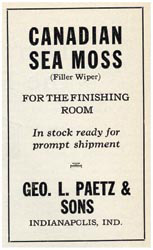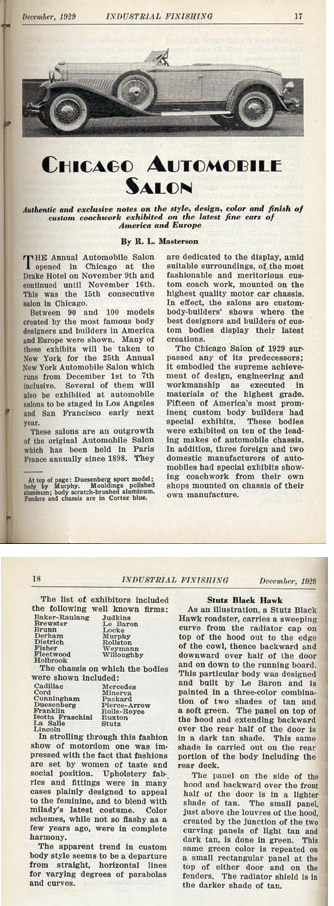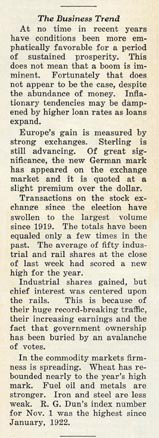A Fascinating 80 Years


World Happenings: 1924
The cost of living:New house $7,720
Average income $2,196
New car $265
Average rent $18 per month
Harvard University tuition $250 per year
Movie ticket $0.15
Gasoline $0.11 per gallon
Postage stamp $0.02
Ground coffee $0.20 per pound
Hamburger $0.13 per pound
Births:
January 21 Telly Savalas
April 3 Marlon Brando
April 3 Doris Day
June 12 George H. W. Bush
July 21 Don Knotts
October 1 Jimmy Carter
Deaths:
Vladimir Ilyich Lenin, mastermind behind Russia's revolution, its first Communist head of state, at 54
Woodrow Wilson, 28th president, worked to establish League of Nations, which was rejected by the U.S. Senate
Franz Kafka, author of The Metamorphosis and The Country Doctor, at 40
Interesting facts:
President: Calvin Coolidge
Vice president: Charles Dawes
Life expectancy: 54.1 years
- American Indians granted full citizenship.
- Gas chamber used for the first time.
- J. Edgar Hoover becomes head of the FBI.
- Ford Motor Co. stock valued at $1billion.
- Al Capone's brother is killed as Chicago gangsters steal ballots in a Cicero village election.
- Adolf Hitler receives a five-year prison term for an abortive putsch in a Munich beer hall; he's paroled six months later.
- Benito Mussolini receives 64% of the vote in Italian elections.
- Stalin wins power struggle in Russia, rules as Soviet dictator until his death in 1954.

World Happenings: 1925
Important dates:March 23 - Tennessee's governor, Austin Peay, signs a bill banning the teaching of evolution. In May, John Scopes, a biology teacher, is indicted for breaking the law. William Jennings Bryan is the prosecutor; Clarence Darrow defends.
June 6 - Walter Chrysler, former president of Buick Motor Co., buys Maxwell Motor Co., which he joined in 1921, and names it after himself.
July 21 - John Scopes found guilty of teaching evolution, is fined $100. Bryan dies five days later.
July 18 - Hitler publishes Mein Kampf, in which he calls for a national revival and battle against Communism and Jews.
Aug. 8 - 40,000 white-robed Ku Klux Klansmen march to the Washington Monument.
Nov. 6 - U.S. Steel shares jump to a record high of $138.
Published:
Theodore Dreiser's An American Tragedy, John Dos Passos' Manhattan Transfer, F. Scott Fitzgerald's The Great Gatsby.
Interesting facts:
"Up on your heels, down on your toes..." begins the instructions to accomplish the Charleston, a fad, developed in Charleston, S.C., that fast becomes an institution.

World Happenings: 1926
Important dates:Jan. 27 - A New machine capable of wireless transmission of moving pictures-television-is demonstrated by Scottish inventor John Baird.
April 25 - College football promotes drinking, dishonesty and neglect of studies, according to a report issued by the American Association of University Professors.
Oct. 16 - Dr. Dunlap of Johns Hopkins University reports smoking makes men more dependable.
Dec. 5 - Claude Monet dies at 86.
Dec. 19 - A Washington court rules women authors must copyright under husband's name.
Births:
May 25 Miles Davis
June 1 Marilyn Monroe
June 6 Allen Ginsberg
Published:
Ernest Hemingway's The Sun Also Rises
Filmed:
Fritz Lang's "Metropolis," Niblo's "Ben Hur"

World Happenings: 1927
Important dates:Jan. 1 - Massachusetts becomes the first state to require auto insurance.
March 7 - A Texas law banning the vote for Negroes is held unconstitutional by the Supreme Court.
May 21 - Nearly 100,000 Parisians greet Charles Lindbergh, 25, after he completes the first solo nonstop flight of 3,600 miles from New York to Paris in 33 hours. He flew by dead reckoning, sometimes dipping to within 10 feet of the sea.
Oct. 6 - Al Jolson stars in "The Jazz Singer," the first "talkie."
Dec. 1 - Secretary of Commerce Herbert Hoover pronounces U.S. wages highest in the world: $1,280 per year.
Dec. 14 - Great Britain recognizes Iraq's independence.
Published:
Virginia Woolf's To the Lighthouse
Theatre:
Ziegfeld's "Show Boat" opens on Broadway.

World Happenings: 1928
Important dates:April 29 - Turkey, following its declaration as a secular state, adopts the English alphabet, replacing Arabic.
May 28 - Dodge Brothers Inc. and Chrysler Corp. merge.
June 18 - Amelia Earhart, 29, the first woman to successfully cross the Atlantic, accompanied by two male pilots, from Boston to South Wales, in 22 hours.
Aug. 11 - Herbert Hoover accepts the Republican Party's nomination, predicting an end to poverty in America and running on a platform slogan of "A chicken in every pot, a car in every garage." He also calls for more rigid enforcement of Prohibition.
Aug. 21 - Movie mogul Joseph Schenk, president of United Artists, says talkies are just a passing fad.
Aug. 27 - U.S., France, Great Britain, Germany and 11 other countries sign Kellogg-Briand Pact, outlawing war.
Nov. 7 - Hoover, in a landslide, defeats Alfred E. Smith of New York. Franklin Roosevelt elected governor of New York.
Nov. 23 - Trading is halted on NYSE after volume reaches 6,954,020 shares, a new record; the price of a seat rises to $550,000.
Dec. 28 - NAACP claims nine Negroes lynched in 1928, the lowest figure in 40 years.
Culture:
D.H. Lawrence's Lady Chatterly's Lover; Gershwin's "An American in Paris"; Ravel's "Bolero"; Chaplin's "The Circus"; first Mickey Mouse films

World Happenings: 1929
Important dates:Jan. 13 - Wyatt Earp, the "incorruptible lawman," dies peacefully in his sleep.
Feb. 14 - In what is called the Valentine's Day massacre, seven Chicago gangsters are slain by firing squad. The killings take place in a beer warehouse, a block from a wealthy residential area. The dead men are said to be part of a mob headed by George "Bugs" Moran. "Scarface" Al Capone is among those under investigation.
March 12 - Asa Candler, founder of Coca Cola, dies. Candler, a poor farm boy, started the business in his shed in 1888.
July 22 - Russia and China assure the U.S. they won't wage war over the jointly operated Chinese Eastern Railway in Manchuria unless either crosses the Siberian-Manchurian border, where troops are gathering. Diplomatic relations are broken.
Aug. 11 - In Cleveland, Babe Ruth hits his 500th home run.
Aug. 15 - Russian warships raid Manchuria; fighting breaks out six days later.
Aug. 24 - Jews and Arabs battle in Jerusalem; 47 die.
Aug. 29 - The dirigible Graf Zeppelin completes a historic trip around the world, arriving at Lakehurst, NJ. Travel time is 21 days, covering 19,500 miles.
Sept. 3 - Stock market reaches an all-time high of 381.17.

Black Thursday: The Stock Market Crashes
Oct. 24 - From one end of the United States to the other, fear feeds on rumor and cascades into panic. Frightened investors order brokers to sell at any price and the stock market crashes.It's difficult to quantify the losses, but they are believed to be in the billions. Thousand of accounts are wiped out. Nearly 13 million shares trade hands.
Brokers could not keep up with the excesses of the market. The ticker fought a losing battle all day, falling four hours behind as the bell sounded at 3:00. The shock on Wall Street spread to other markets and exchanges, such as the Chicago commodities exchange.
Fears of a decline started several weeks earlier as reports spread about managers of large trusts liquidating many of their securities. Some stocks had been selling at 15 to 150 times earnings.
Looking for a reprint of this article?
From high-res PDFs to custom plaques, order your copy today!







